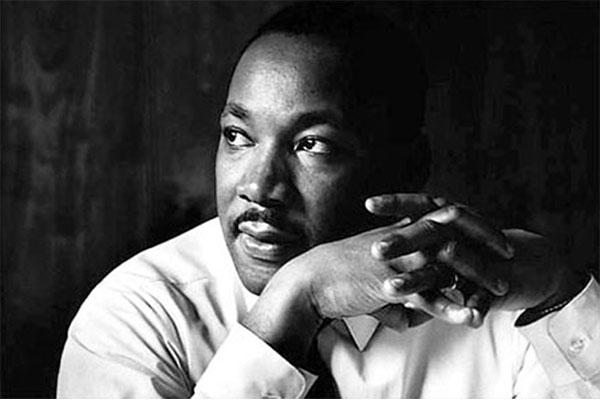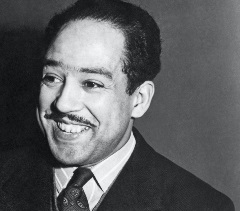OMAHA PERFORMING ARTS
Honoring Dr. Martin Luther King, Jr.

As we observe Dr. Martin Luther King, Jr. Day we are given an opportunity to honor the legacy of one of our greatest civil rights leaders. We’re thankful for Dr. King’s fight for equity and freedom for all Americans. At Omaha Performing Arts, we understand the important role that we play in moving his vision forward.
So much has transpired in our world since the last MLK day --- the COVID-19 pandemic, racial injustices, heightened awareness of systemic racism within the arts and rising unemployment. Many of these issues have disproportionately impacted Black and other communities of color for centuries. These are the same disparities King fought to eradicate during the civil rights movement.
At Omaha Performing Arts, through our inclusion, diversity, equity and accessibility committee we seek to address and unlearn implicit and explicit biases, acknowledge privilege and hold ourselves and others accountable. A quote from Dr. King that resonates is, “Our lives begin to end the day we become silent about things that matter.”
Voices AMPLIFIED! a series on arts and social justice to amplify artists in diverse cultures is one way O-pa seeks to fulfill Dr. King’s equity and justice dreams. The implementation of this program has happened over time and started internally through increasing BIPOC representation in our staff and programming efforts. O-pa remains committed to making changes in this ongoing fight for equity.
On June 25, we will hold our 2020-21 season Voices AMPLIFIED! finale event. Titled after the Langston Hughes’ poem, “Let America be America Again,” the program will feature local literary, music, dance and visual arts talent focused around racial equity, social justice, and the arts, with an emphasis on the Black Lives Matter movement and Black history.

Langston Hughes
You might be wondering, what does this have to do with Dr. Martin Luther King, Jr. and Langston Hughes? Research shows Dr. King and Hughes were good friends, exchanged letters and traveled to Nigeria together in 1960. Hughes was one of the Harlem Renaissance’s leading poets and King was often an honored subject of his poetry.
A book named, “Origins of the Dream: Hughes’s Poetry and King’s Rhetoric”, by W. Jason Miller further explores their relationship and rhetoric.
According to Poetry Foundation, in 1956, King recited Hughes’ poem “Mother to Son.” In the same year, Hughes then wrote a poem about Dr. King and the bus boycott titled “Brotherly Love.” In an article written by Suzanne Wise of the Poets House in New York, Wise notes one specific example of their creative exchange.
“Life for me ain’t been no crystal stair—…sometimes goin’ in the dark / Where there ain’t been no light” -Langston Hughes, Mother to Son.
These elements were transposed in some of King’s speeches in Montgomery during the bus boycotts (Wise, 2019).
“Well, life for none of us has been a crystal stair, but we’ve got to keep going. We’ll keep going through the sunshine and the rain. Some days will be dark and dreary, but we will keep going. Prodigious hilltops of oppression will rise before us, but we will keep going. Mountains of evil will stand in our path, but we will keep going.” – Dr. King
Like, Hughes, poets, artists and musicians have been inspired to write about Dr. King or reflect on his work as a way of carrying the freedom vision forward. As we pay tribute to this great civil rights leader, we must be intentional about fighting for equity in art, our communities, workplaces, government and other areas we participate. Dr. King once said, “Life’s most persistent and urgent question is, what are you doing for others?”